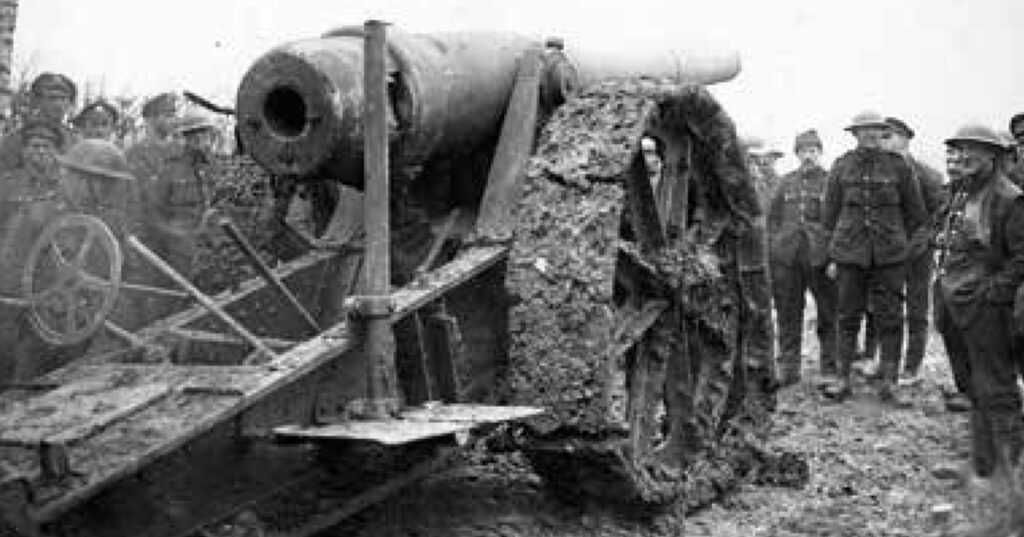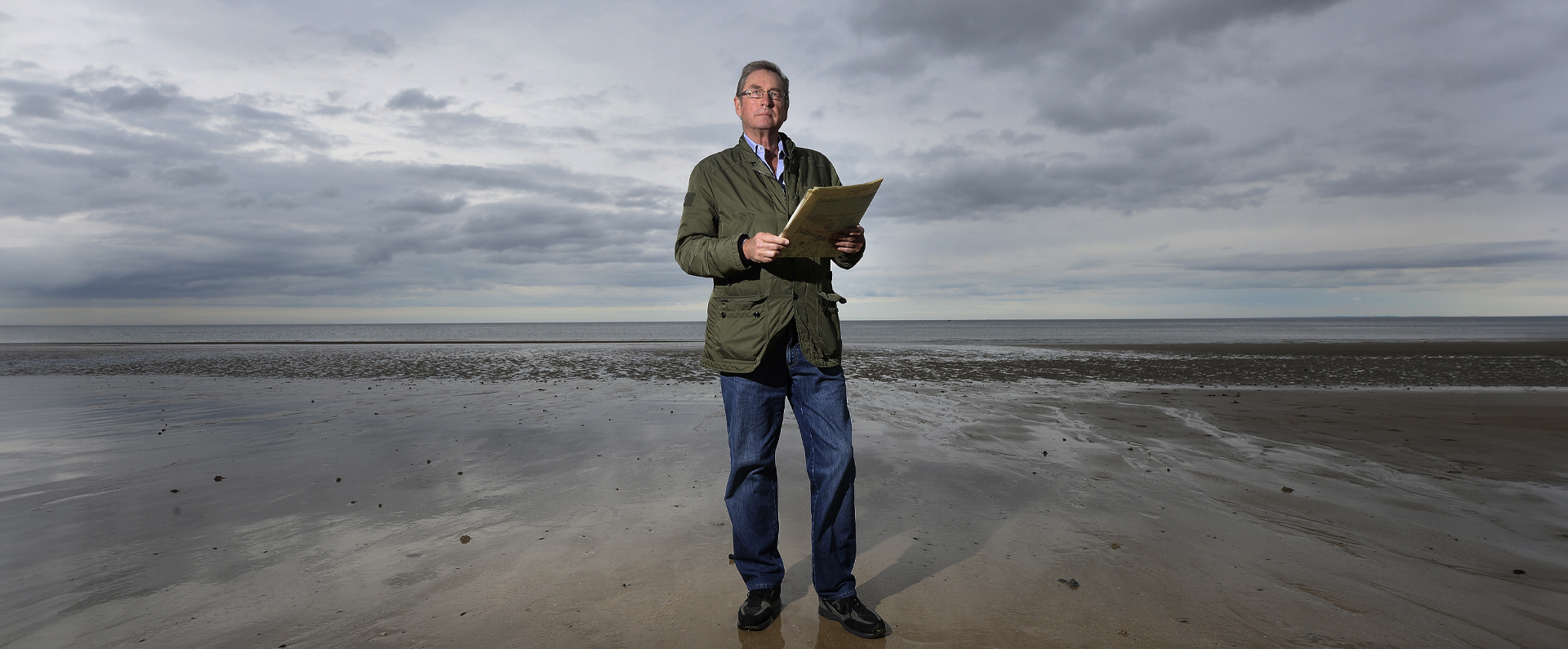
Published in Britain at War in March 2018.
Acting Captain Allastair Malcolm Cluny McReady-Diarmid VC: skill
Allastair Malcolm Cluny McReady-Diarmid (as he was known as the time of his death) was born with the name of Arthur Malcolm McReady-Drew on 21 March 1888. One of four sons born to Herbert Drew, a civil servant, and his wife Fanny (née McReady), he was born in New Southgate, London.
The young Arthur (as he was then known) was educated at Queen Elizabeth’s Grammar Preparatory School in Barnet, north London, before his parents moved to Jersey in 1903. On the island, he was educated at Victoria College for a year before his parents returned to live in London. With the family home in Acton, west London, he was educated at Ealing Grammar School, a private school.
After the outbreak of the Great War in August 1914, McCready-Drew, by then aged 26, attended London University’s Officers Training Corps. Commissioned as a second lieutenant on 10 March 1915, McReady-Drew initially served with the 4th Battalion, The Middlesex Regiment (Duke of Cambridge’s Own).
By September of that year, he had changed his name by deed poll at the request of his colonel, apparently (and rather bizarrely) because too many men in the regiment were called “Drew”. For some reason, he changed, and added to, his first names too and became “Allastair Malcolm Cluny McReady-Diarmid”.
After being wounded in action on the Western Front while serving on attachment to the 17th (Service) Battalion, Middlesex Regiment (1st Football), he was invalided home and spent four months in hospital. It was while recuperating in Dursley, Gloucestershire, that McReady-Diarmid met Hilda Dainton, a local tinsmith’s daughter who was working during the war as a nurse.
The couple married at St James’ Parish Church, Dursley, on 10 September 1915, although this caused a major rift with McReady-Diarmid’s own parents, who apparently considered that he had married beneath him.
In October 1915, after the couple had honeymooned, he returned to active service, being transferred to the 14th Battalion. McReady-Diarmid was promoted to lieutenant in September 1917 and in October 1917, he was promoted to acting captain and then allowed home for leave.
While at home, he met – for the first time – his daughter, Alison Hilda, who had been born in May of that year. After returning to the 17th Battalion the Western Front, McReady-Diarmid showed such courage in battle over two days that he was awarded the VC.
On 30 November 1917, the Germans launched a major counter-attack against the Allied forces, breaking through the British line south of Canal de St Quentin.
At this point, the 17th Battalion were just north of the line near Canal du Nord, just east of Moeuvres. During both 30 November and 1 December, McReady-Diarmid, of “D” Company, led numerous counter-attacks.
The citation for his VC takes up the story:
“For most conspicuous bravery and brilliant leadership.
“When the enemy penetrated some distance into our position and the situation was extremely critical, Captain McReady-Diarmid at once led his company forward through a heavy barrage. He immediately engaged the enemy, with such success that he drove them back at least 300 yards, causing numerous casualties and capturing 27 prisoners.
“The following day the enemy again attacked and drove back another company which had lost all its officers. This gallant officer at once called for volunteers and attacked. He drove them back again for 300 yards, with heavy casualties. Throughout this attack Captain McReady-Diarmid led the way himself, and it was absolutely and entirely due to his marvellous throwing of bombs that the ground was regained.
“His absolute disregard for danger, his cheerfulness and coolness at a most trying time inspired all who saw him.
“This most gallant officer was eventually killed by a bomb when the enemy had been driven right back to their original starting point.”
He died, aged 29, at Moeuvres, northern France, and his VC was announced on 15 March 1918. His VC was presented to his widow, Hilda, by George V at an investiture at Windsor Castle on 20 April 1918.
Incredibly, it seems that McReady-Diarmid, alone as the sole bomb-thrower, had accounted for 94 of the enemy: 67 dead and 27 wounded. The official report into the action said that it was “a feat which can hardly, if ever, have been equalled in the past”. On the second day of his VC action, he had rallied his men who were “tired and shaken”.
His body was never recovered. During the military operation, which ran from 26 November to 3 December 1917, his 17th Battalion lost seven officers and 180 other ranks as casualties (dead and wounded), but the bodies of 150 enemy soldiers were found dead in their trenches.
Sir Arthur Conan Doyle, who described the fighting at Cambrai, wrote: “There was no more wonderful individual record in the battle than that of Captain McReady-Diarmid , of the 17th Middlesex, who fought like a d’Artagnan of romance, and is said to have killed some eighty of the enemy in two days of fighting before he himself at last met that fate from which he had never shrunk.”
Today he is commemorated on the Cambrai Memorial, Louverval Military Cemetery, northern France, and on Dursley War Memorial, Gloucestershire. There is also a memorial in his honour at Victoria College, Jersey.
McReady-Diarmid’s widow and daughter moved to St-Leonards-on-Sea in East Sussex after the war. On 26 June 1920, they both attended the VC garden party at Buckingham Palace, where they were introduced to the King.
McReady-Diarmid’s medal group is on display at the National Army Museum in central London because, in 1973, McReady-Diarmid’s widow, Hilda, then aged 83, presented it to the museum. Their daughter, Alison, had died seven years earlier, in 1966, aged just 48.
Download a PDF of the original Britain at War article
For more information, visit:
LordAshcroftOnBravery.com

